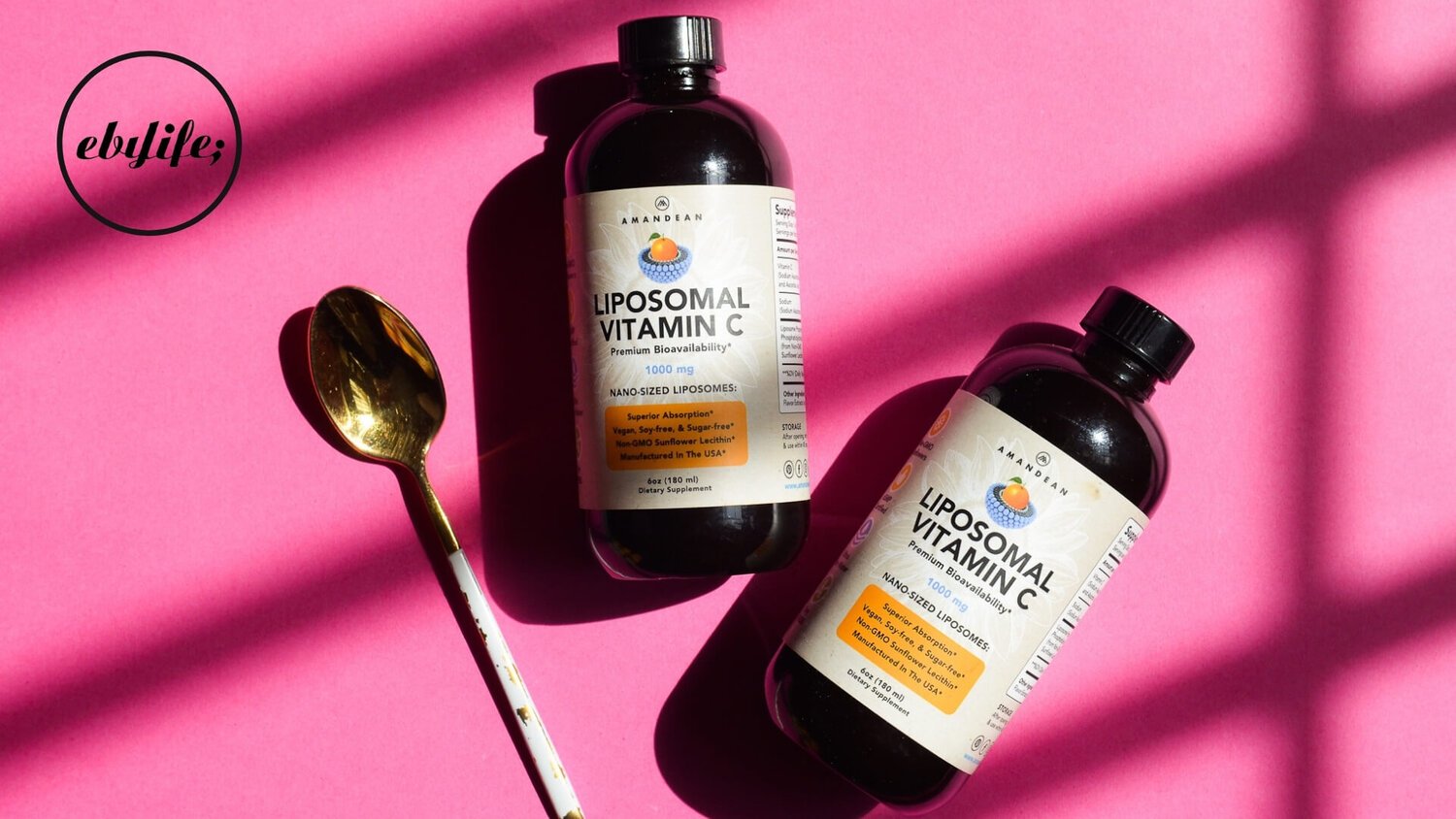Got Stubborn Muscle Soreness? Try Vitamin C!
By Martin Ebner, Head PT and sports nutrition specialist at Ebylife
You're probably used to hearing that you should take a vitamin C supplement to strengthen your immune system and help keep the sniffles at bay. Or how about eating a variety of antioxidants and enjoying the occasional glass of wine to help protect against heart disease and harmful inflammation. Don't get me wrong, I'm all for an extra splash of lemon juice to top up on my vitamin C. However, if you're saving vitamin C exclusively for the dinner table or before travel, you're missing out on its many benefits, including decreasing post-exercise soreness.
Is more pain really more gain?
Muscle soreness is a natural, healthy part of healing after exercise. Even aches and pains such as sore neck muscles from typing away at the computer are normal. Soreness is a by-product of natural muscle recovery. In fact, there's a term for it! Physical activity or any movement that your body is not used to can cause delayed onset muscle soreness or DOMS. DOMS usually begins 6 to 8 hours after exercising and can last anywhere from 24h to 7 days depending on the severity of the workout. Despite the misconception, DOMS or sore muscles is not the result of lactic acid build-up. While lactic acid does build up during exercise to help break down glucose after all of the body's oxygen has been used, lactic acid doesn't collect in the muscle tissue and cause soreness. Rather, muscle soreness is an inflammatory response caused by tiny microscopic tears that form throughout the recently strained muscle tissue.
This acute form of muscle damage can be a sign that you're on the right track and making progress. However, too much soreness can interfere with muscle function and exercise performance. Soreness lasting more than a few days or severe pain that inhibits mobility can be a sign of an underlying condition or issues like a strain and sprain.
Managing muscle soreness is relatively straightforward. However, if you are having trouble shaking stubborn muscle soreness, vitamin C might be the answer (or at least part of it).
See: Muscle Growth: 12 Essential tips to build more muscle
Should I take vitamin C for muscle soreness?
So where does vitamin C come into play? How is it able to strengthen the immune function while helping to speed up exercise recovery?
Muscle soreness is pretty much inevitable. It's a marker of growth! However, it is believed that muscle soreness can be prolonged and exacerbate free radicals, a byproduct of the oxidative stress your body undergoes during exercise. An unhealthy diet, the environment, and alcohol can also cause undue oxidative stress. That's why it is believed that vitamin C or ascorbic acid, a natural antioxidant, may be able to help decrease muscle soreness.
More specifically, as an antioxidant, vitamin C is known to assist cells in the healing process and help to repair muscle tissue. It can't do this job alone though! Collagen, the most abundant protein in the human body, is a structural protein that helps to build strong and flexible connective tissues, including the joints, skin, and muscles. It's responsible for wound repair and muscle building. Vitamin C also supports muscle repair by stimulating the synthesis of collagen and enhancing its bioavailability.
Vitamin C may also keep testosterone levels high by suppressing cortisol production. For male athletes, this will help your body to keep up that top level of performance you require on a daily basis.
A 2006 study tested this theory by measuring the effect of high dose vitamin C supplementation on muscle soreness, oxidative stress, and muscle function. In this study, healthy men were given a vitamin C supplement before and after eccentric exercise (lengthening of the muscle) and their relative rates of oxidized glutathione (spent antioxidant) vs. total glutathione levels were compared against the placebo. In the end, the data suggested that pretreatment vitamin C can reduce muscle soreness, delay the increase of creatine kinase (an enzyme released due to muscle damage), and prevent blood glutathione oxidation.
Additionally, a 2018 study examined the application of vitamin C and vitamin E supplementation in sports medicine. In this study, taekwondo athletes were given high doses of 2000 mg of vitamin C and 1400 mg of vitamin E for 4 days leading up to Taekwondo tournaments. In perhaps the ultimate test of muscle recovery, the athletes were to compete in three matches in a single day. Blood samples were drawn before and after the tournaments to measure markers of muscle damage, hemolysis, and systemic inflammatory state. Similar to the study mentioned above, vitamin C and E supplementation were found to have effectively lessened exercise-induced tissue damage and inflammation during and after Taekwondo matches.
How much vitamin C should I take to decrease muscle soreness?
Antioxidant supplementation needs vary between individuals. Although vitamin C can naturally be found in many foods, it can be difficult to get the daily recommended value from diet alone.
Adult men are advised to get 90 mg/day and adult women are advised to get 75 mg/day. Athletes in need of more muscle relief may benefit from taking higher dosages of 500 to up to 3,000 mg/day, depending on activity level and soreness.
Amandean sells one of my favorite antioxidant vitamins on the market. Their liposomal vitamin C is a high concentration liquid formula that delivers 1000 mg in every teaspoon. I've found that this is the quickest and easiest way to get enough vitamin C in my diet. Shoot it like a shot, mix it into water, or add it to a smoothie, it's a nice change from the regular hefty pills and in my opinion, tastes pretty good!
GET 10% OFF YOUR FIRST AMANDEAN ORDER WITH CODE: EBYLIFE10
Tips for relieving muscle soreness
Preventing muscle stiffness is one of the primary goals of sports nutrition. Luckily, multiple systematic reviews of the matter have shown that vitamin C is not your only line of defense.
Vitamin D: Vitamin D deficiencies may lead to muscle fatigue and frailty. Ensuring that you have adequate vitamin D may help to prevent fatigue, improve muscle strength, and improve bone health by supporting the production of calcium.
Potassium: Potassium, an electrolyte, may help to prevent muscle cramps and soreness. Bananas, avocados, yogurt, nuts, and seeds are all excellent sources of potassium and should provide enough to help you conquer the stairs without anyone knowing yesterday was leg day.
Do light exercise the day after: If you just know that you pushed your exercise a bit too far today, plan to do light exercise the following day to aid in the muscle healing process and relieve inflammation. Walking, swimming, or doing yoga can boost circulation and help you to limber up. Just don't push it too far and run the risk of stunting the healing process.
Massage or use a massage gun: Research has found that even just 10 minutes of massage does wonders for sore muscles! Massage has been found to cause chemical changes in muscle cells, resulting in less inflammation and increased creation of mitochondria to produce more energy. Follow along with the exercises, stretches, and massages in this "Rest Day Routine" to make the most of your day off. See also: Pre-sleep nutrition: Boost muscle recovery before bed
No, more pain doesn't always result in more gain. Though pain is a part of the process, nobody said you have to suffer through it.

